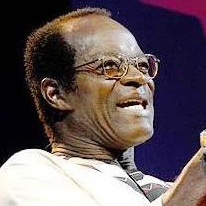WASHINGTON—Liberian President Charles Taylor has gone into exile; his vice president, Moses Blah, has taken over; a West African peacekeeping force has arrived; and U.S. Marines have landed to provide help if needed. Yet, peace may be no closer. If anything, Taylor’s departure adds more confusion to the situation and could even derail efforts to end the fighting between the government and rebel groups. The preoccupation with his exit has diverted attention from 10 1/2-week-old peace talks in Accra, Ghana, which apparently aren’t going well.
Still, peace accords in Africa seldom produce peace. Essentially, they are a formula for state-sanctioned plunder of a country. The accords typically create an interim government or a government of national unity to bring rebels and government leaders together. Ministerial or government positions are distributed among former combatants, but nobody is satisfied for long with what they get. Suspicion and distrust linger. Squabbles often lead to the resumption of fighting.
More than 30 peace accords have been brokered in Africa since the 1970s, and most died within months of acceptance. Only Mozambique’s 1992 peace accord has endured; shaky pacts hold in Chad, Niger and Ivory Coast. Among the most spectacular failures were the Bicesse (1991) and Lusaka (1994) accords in Angola and the Arusha accord (2000) in Burundi.
The accords collapse for two basic reasons. First, everyone wants to be interim president, and all parties want power. Nobody is willing to compromise. Second, conflict creates its own “profitable” dynamic. Government leaders under siege suspend civil liberties and rule autocratically; in the name of national security, they shelve development projects, curtail social services and keep defense budgets secret, thereby shielding padded contracts to cronies. To rebels, war creates opportunities to pillage and plunder a country’s natural resources, like gold and diamonds. Commercial interests may be well positioned to profit from a black market in scarce commodities.
In Sudan, for example, the Sudan People’s Liberation Army diverted international relief supplies for its military operations, while the government skimmed oil revenues to purchase weapons. In Somalia, where there is no formal economy or effective government, militia groups engage in wide-scale looting. In Angola, Liberia, Sierra Leone and Congo, both governments and rebel groups have plundered diamonds, gold, iron ore and timber to finance their fighting capacity.
Governments of national unity also tend to have short life spans. In South Africa, former President Frederik W. de Klerk eventually pulled out of such a government, one he helped design, after Nelson Mandela won the presidency in 1994. Angola’s new government lasted little more than six months in 1992. Congo’s has four vice presidents but hasn’t brought peace to eastern Congo, especially in the Bunia region. Burundi’s civil war has flared up again, despite an accord brokered by Mandela.
In light of this sorry track record, more than a routine peace accord is needed in such failed states as Liberia. Government long ceased to exist in Liberia. Its institutions and agencies were hijacked by a phalanx of Taylor goons for personal enrichment. The former Liberian president destabilized not just Liberia but the entire West African region, sponsoring rebel movements in Sierra Leone, Guinea and Ivory Coast. Refugees from the fighting have ended up in Ghana to Nigeria. What’s needed in Liberia is a regional, get-tough approach.
First, the peace talks in Ghana should not be allowed to go on forever, as they did in the case of Somalia, where no fewer than 14 attempts were made to resolve the conflict. A deadline must be set.
Second, impunity should no longer be tolerated. Just as Taylor was indicted by a U.N.-backed war crimes tribunal, factional leaders on both sides should be held accountable for rape, pillage and other crimes against humanity committed by their soldiers. In the past, rebel leaders paid no price for the destruction they wrought. Rather, they were rewarded with government posts. The most outrageous instance of this occurred in 1999, when the Lome peace accord to end Sierra Leone’s brutal civil war was accepted. The barbarous Revolutionary United Front, whose trademark was hacking off the limbs of anyone who stood in its way, was allocated four Cabinet seats in the new government, with its leader, Foday Sankoh, receiving the ministry of lands and mines.
Third, civil groups, church leaders, traditional leaders and identifiable victims of the conflict in Liberia should be given seats at the peace table.
Fourth, an enforcement mechanism agreed to by all parties should be established to police decisions taken at peace talks.
Fifth, because most of Africa’s civil wars result from a struggle for political power, peace talks should be broadened into “sovereign national conferences,” the modern-day equivalent of the indigenous African “village meeting.” This approach was used in—among other countries—South Africa in 1992 to help chart its political future.
If the peace talks in Ghana fail, there’s a more forceful way to bring about peace in Liberia: It should be placed under the trusteeship of the Economic Community of West African States, which would administer the country for an interim period of, say, two to five years. A governing board made of up technocrats from the West African nations would run the country, with its performance subject to periodic reviews by the African Union or the United Nations. During this interim period, essential services—water, electricity, health care, education, etc.—would be restored and legal and political institutions fumigated and rebuilt. Achieving these goals would be far more important to the people of Liberia than who should be the interim president.
Such a trusteeship, with logistical support and backing from the African Union, the U.N., the U.S. and other Western governments, would send a powerful message to other African warlords who are uninterested in peace: their country might be next.








